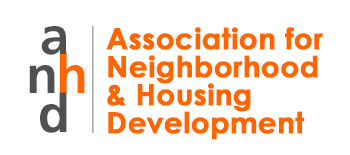Statement from ANHD on the Announced Mandatory Inclusionary Housing Policy
The Association for Neighborhood and Housing Development has been the leading organization calling for a Mandatory Inclusionary Housing (MIH) policy because we believe that the City needs a new baseline for how affordable housing gets built in all communities. Today the City Council announced the negotiated MIH policy.It is the strongest Mandatory Inclusionary Housing program in the county. It not only requires that affordable housing be built in any area where significant zoning density is added, it allows communities the ability to require affordable housing at 40% of Area Median Income, which is significantly more affordable than any other policy in the country.This is a direct result of key Council members, ANHD, and our housing group’s efforts. Working together we fought to make sure that any MIH policy that got adopted would be one that truly promotes inclusion in all of our City’s neighborhoods. The announced deal will make sure that MIH serves an additional 15% of New York City’s households – close to half a million families – that would have been left out under the proposal that first entered the ULURP process months ago.We commend Mayor de Blasio for his commitment to a strong MIH policy. We also particularly commend the efforts of the City Council, and those City Council members who worked with ANHD and our local groups to improve on the originally-proposed policy as it made its way through the ULURP process.
But MIH alone still falls short of meeting New York City’s affordable housing needs. Almost 30% of our City’s households fall below 30% of AMI, and will not be served by the MIH program. As a City, we must take up and meet the challenge of housing all of our communities’ families. We hope and expect to see the Administration work now with local community groups to find additional ways to reach the deep levels of affordability that meet the true needs of the neighborhoods where rezonings are proposed, many of which have local median incomes far below the levels that will be served by MIH.
We continue to believe that every Option within MIH should require some deep affordability. As the final details are worked out, we encourage the Council to consider requiring some deep affordability in Option 2.
 ANHD 2016 Building the Community Development Movement
ANHD 2016 Building the Community Development Movement
